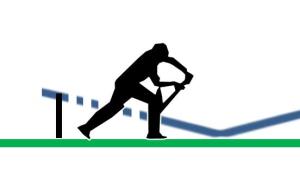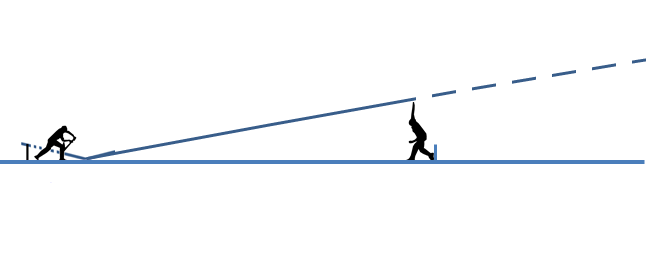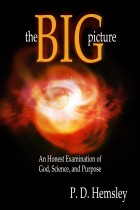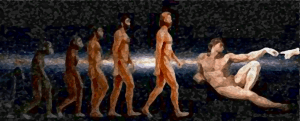A few years ago I decided to dig deeper into the apparent conflict between science and religion.
Many people have the view that science can in theory explain everything, that even if we don’t know the answers yet then it is just a matter of time before we find them. This view of Science has turned it into a faith.
I admit that I wondered if advances in science since I studied it might actually bring more powerful arguments than I was aware of. But I also wondered whether the extreme unlikeliness of life might be sufficient to prove that there must be a God and so I spent several years reviewing what science has discovered and assessing how that fits with Christianity.
The first thing to say is that there are clearly things written in the Bible that are not to be taken literally. And it causes problems when people do. When people hear both Christians and atheists claim that Christians believe that Genesis is the literal truth then they are unlikely to look any further. It is that which put me off even considering God until I was forty, and so I feel that Creationists do God a disservice.
Putting Creationism aside, I have not found any serious conflict between science and faith.
I have found that when you try to calculate numbers, you find that the chances of us being here are extremely small – but we are here. The chance of me winning the lottery if I buy one ticket is extremely small, but every week someone wins. If you try often enough then extremely unlikely events will happen.
But how can I say that there isn’t any serious conflict between science and faith? Isn’t there a conflict between science and miracles? Hasn’t science shown that they are impossible?
To answer that we need to think about what we actually mean by science. It’s a term that is in such common use that we often don’t think about what it really is. A few years ago the Science Council realised that they didn’t have a definition of science, and so they came up with one.
“Science is the pursuit of knowledge and understanding of the natural and social world following a systematic methodology based on evidence.”
Let’s break that down a little:
“the pursuit of knowledge and understanding” – I’m sure we are happy with that, although it doesn’t say ALL knowledge and understanding.
“of the natural and social world” – that’s good, it defines the scope where it applies. Science has nothing to do with what is not the natural and social world.
“following a systematic methodology based on evidence” We can expand on that a little. The methodology includes steps of
- Observation of a phenomenon and experiment to find out what happens
- Trying to think of what the rules are that describe the phenomenon – the rules should be consistent with the accepted laws of science.
- Establishing new experiments or observations to test the theory
- Repeat the experiments
- Analyse and review the results, and publish.
Critical to this is repetition. Science assumes that the “natural and social world” behaves in a manner that is repeatable.
Richard Feynman, a famous physicist was giving a talk about what is known as the ‘two slit experiment’ – you shoot electrons at a barrier which has two slits in it, and a screen behind it, and you observe where each electron hits the screen. He comments that
“A philosopher once said that: ‘It is necessary for the very existence of science that the same conditions always produce the same results’. Well, they do not. You set up the circumstances, with the same conditions every time, and you cannot predict behind which hole you will see the electron.”
Through repetition, science has discovered that if you look at enough numbers of electrons then a predictable pattern emerges. However, the behaviour of an individual electron cannot be predicted.
And what is a miracle? The Cambridge Dictionary definition of a miracle is:
“An unusual and mysterious event that is thought to have been caused by a god because it does not follow the usual laws of nature”
By definition, science and miracles are mutually exclusive.
- Science defines the usual laws of nature
- Miracles don’t follow the usual laws of nature
But this does NOT mean that science tells us that miracles cannot happen.
It’s like putting everything that behaves in a predictable manner into a box and calling that science. I can learn all about what goes on inside the box. But none of my knowledge about what goes on inside the box can tell me anything about what is outside the box.
I might assume that nothing exists outside the box, but science can give me no evidence of whether my assumption is true. Belief in that assumption is called materialism. The faith of materialism asserts that there cannot be miracles, but science itself can say nothing about whether miracles can happen.
But what if there is evidence that the universe doesn’t always behave according to fixed materialistic laws? Does that disprove materialism?
What if I know that there are things outside the box?
It seems to us that we are able to make choices. We can decide who to vote for in elections. We can decide whether to come to a breakfast talk. We can decide whether or not to kill our next door neighbour.
It’s called free will. We experience our free will every day.
But if the universe operates according to fixed laws of nature, where is there scope for free will?
There are some who believe so completely in Materialsm that they think free will is an illusion. Here’s an example from an on line discussion forum:
“. . . given our understanding of determinism and un-determinism there is nothing left that explains exactly what free will could be, in the traditional sense. It’s more a case of a challenge to those that assume free will to explain its mechanism.”
In other words, Materialists believe that free will cannot exist in a universe which operates according to fixed laws. So if you or I believe that we have free will, then that is a strong hint that materialism is wrong – that there are things outside of our box.
There is another definition of miracle in the Cambridge dictionary:
“a very lucky event that is surprising and unexpected”
Even within the laws of physics it is possible for miracles to happen.
There is an account in the Bible of when Jesus told one of his followers to go and catch a fish, and that in the mouth of the fish he would find a gold coin, and then he was to use that coin to pay their tax. That is such an extremely unlikely event that it becomes a miracle, but a miracle operating within the “laws of physics”.
I said earlier that I’d wondered whether the extreme unlikeliness of life might be sufficient to prove that there must be a God. Whilst the origin of life may follow the laws of physics, is it so unlikely that it is classed as a miracle? Let’s explore that a little and try to get a feel for some numbers.
It is difficult to define what life is, but one element that we are all aware of is the ability to reproduce, or replicate.
All life as we know it – plants and animals – contain long chain molecules. Proteins are building blocks for much of the body, and DNA acts as a template for organising amino acids into the correct order to make proteins and to replicate itself.
DNA is made up of four nucleotides, called ‘bases’. These are held in place on a sugar/phosphate backbone. The order of the bases defines the order of amino acids that are assembled by machinery in the cell in order to form a protein. The machinery in the cell includes other long chain molecules that are essential for the replication process.
Although human DNA has around 3 billion bases, scientists have estimated that the minimum length of a long chain molecule that would be able to replicate is around 40 bases. Like DNA, those 40 bases would need to be in a precise order to be able to replicate.
The question is, where did this first long chain molecule come from? It was not built by the mechanism in the cell, because there was no mechanism.
Perhaps it might have self assembled by chance if we had a pot of molecules bubbling in a primordial soup.
Now, the number of different possible sequences of a chain of forty molecules of four different types is massive, and the chance of any particular one forming at random is on in a septillion! That’s 1024 – a million billion billion.
And if you needed two specific molecules to ensure replication then it would be the same as searching for a single molecule in the whole mass of the earth.
No wonder Richard Dawkins has said that
“Self-replicating molecules that made copies of themselves came into existence by sheer luck….. Nobody knows how it happened.”
We can agree I think that the origin of life is “a very lucky event that is surprising and unexpected” …. i.e. a miracle.
Another extremely unlikely occurrence is the fine tuning of the universe.
We use equations to represent the laws of physics as we know them. The equations usually include a number of constants. Some constants can be derived mathematically, such as the ratio of the circumference of a circle to the diameter which is known as Pi.
Other constants don’t appear to have their value for any particular reason – as far as I’m aware there is no particular reason why the speed of light is what it is. These constants are only obtained by careful measurement.
Scientists can calculate what might have happened if the constants had been different. These calculations show us that the constants in this universe seem to be incredibly fine-tuned.
John Lennox quotes that “If the ratio of the strong nuclear force to the electromagnetic force had been different by one part in 1016, no stars could have formed. If the ratio of electromagnetic force-constant to the gravitational force-constant was increased by only 1 part in 1040 then only small stars would exist; decrease it by the same amount and there will only be large stars. You must have both large and small stars in the universe; the large ones produce elements in their thermonuclear furnaces and it is only the small ones that burn long enough to sustain a planet with life. That is the kind of accuracy a marksman would need to hit a coin on the far side of the observable universe, twenty billion light years away.
Many thinkers and Christian scientists pursue the idea that these levels of extreme improbability must ‘prove’ that the laws of nature are insufficient, and that ‘The hand of God’ is required at critical points in the history of the universe to explain where we are today. I find the idea attractive, but it is not unquestionable proof as there is always the counter argument that with enough attempts unlikely things happen.
And for me, trying to find God in the unlikely concedes too much. It is a false way of thinking that seems to accept that if we can explain something scientifically then we don’t need God – so we have to look for things that we can’t explain scientifically and voila: God. This is called ‘God of the Gaps’, and constrains God to those things that we can’t explain – the gaps.
But it is actually applying the faith of the Materialist to God. “I’m going to claim everything that is explainable as my materialist faith, and just leave you with the gaps to explain by God”
It implies that:
- God is confined to the gaps
- God only ‘appears’ intermittently
- God only does miracles
That is a misunderstanding of God.
What if we apply this sort of ‘improbability thinking’ to the development of a human being from a single cell?
DNA is often called the blueprint of the body, and is the template to build all the protein molecules in the body. Human DNA has just under 3 billion bases. There are around 3.5million letters in the Bible, so it would need around 800 books the size of the Bible to write out human DNA. That sounds a big number (although our DNA only a tenth of the size of that of an amoeba), but let’s look at what the DNA has to do.
An adult has fifty trillion human cells. That’s 17000 cells for each DNA base. And scientists have said that 97% of our DNA is actually ‘junk’ … not used for producing proteins. If that is right, then there are over half a million cells for each non-junk DNA base.
Our fifty trillion cells are organised into systems:
- Circulatory system
- Skeletal system
- Immune system
- Muscular system
- Hearing
- Sight
- Nervous system
- Brain
- ….
Those systems change with time. Components are built at different times in the development process. Cells have to die off to make way for other cells. We have to stop growing at some point. We are programmed to die.
And our “short” string of DNA is supposed to define all of this. The orchestrated operation of the fifty trillion cells for over seventy years is not something that is learned as the body grows. And the coding of these systems was contained in the DNA of one single fertilised cell.
Using a ‘probability’ type of thinking, we might deduce that it is impossible for a human to grow from a single fertilised cell without the hand of God.
And yet we see it happen every day, 350,000 new babies born a day around the world. This miracle has being repeated by the hand of God billions of times, just in humans. The hand of God is very busy!
Now actually, this is a better understanding of God. This is not a ‘God of the gaps’ but a ‘God of everything’. This is a God who sustains the operation of matter in a consistent manner that we can predict through the scientific method. This is a God who provides the raw materials for science to study.
This is a God of whom the psalmist wrote: “For you created my inmost being; you knit me together in my mother’s womb.”
The behaviour of matter, as modelled by the laws of physics can be understood to be the hand of God. We no longer search for a God who lives outside the universe and occasionally pops in to correct it when it goes wrong, but we have a God who is intimately involved in the universe, sustaining not only the laws of physics but also our very being. Everything that science discovers is simply discovering more of the wonders of God.
If we can grasp this it leads to two responses:
Wow! …. and…. Why?
To understand the Why, we can’t look to science – but we can look to Jesus. And when we understand the Why, and respond to it, the Wow becomes our worship. The study of science returns to its origin, the search for a better understanding and knowledge of God.
Thank you for reading.




